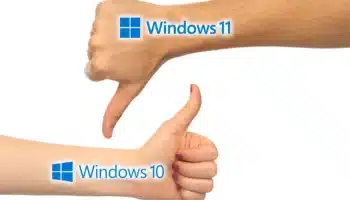US needs $23.5 B more to fund the rest of broadband buildout

A 151-page report released this morning by the Omnibus Broadband Initiative (OBI) of the Federal Communications Commission (PDF available here) acknowledges an estimated $23.5 billion funding gap between the amount that government and business combined are presently prepared to spend to equip rural and underserved areas with broadband service, and the amount it believes is necessary.
The report doesn't say the government needs to raise that much more money in the coming years -- for instance, through increased taxes. Rather, it acknowledges that broadband buildout is accomplished by private industry, which is spurred to make those investments with government "incentives." But since almost by definition, the underserved areas of the nation will also be those areas that will almost certainly never become profitable for carriers to service in the first place, the problem becomes that no amount of government incentives may be enough.
What about the WiMAX networks that aren't Sprint/Clearwire?

With Clearwire and Sprint pushing for mobile WiMAX coverage in 80 U.S. markets by the end of 2010, and promising three new WiMAX-powered smartphones in the near future, it's easy to lose sight of the wireless technology as a solution for rural residential broadband.
Today, Kansas Broadband Internet (KBI) announced it is moving ahead with the construction of its own WiMAX network with PureWave as the exclusive hardware provider. The finished network will cover 18 counties, and more than 12,000 square miles. With only 33 residents per square mile, Kansas is one of the United States' ten least densely populated states.
Like Google and Nokia, Microsoft starts to offer free navigation for its phones

Google began offering free turn-by-turn navigation with Android 2.0 in late 2009, and Nokia announced at the beginning of 2010 that Ovi Maps navigation would be free on all its future handsets. Today Microsoft announced that it is following suit with free turn-by-turn navigation for Windows 6.x and up phones, powered by Bing Maps.
When getting directions with Bing, there will now be a "Navigate" button which starts the turn-by-turn voice navigation. The voice navigation feature was developed by the Microsoft Tellme team.
Mozilla turns up the fire, Firefox 4 betas to begin in June
![A recent mockup of the likely default appearance of Firefox 4.0. [Courtesy Mozilla]](https://betanews.com/wp-content/uploads/media/49/4966-150x150.jpg)
With competition in the Web browser field having transitioned from cold to boiling in less than a year's time, Mozilla suddenly finds itself playing catch-up against not only Apple and Google, but Microsoft as well. In March, the organization realized it needed to completely make over Firefox 4 if it wanted to remain feature competitive against a fast-rising Google Chrome.
In a live presentation yesterday, Mozilla Firefox director Mike Beltzner admitted that his group's March roadmap, which involved an interim release of Firefox 3.7, had too many steps. Now the group has decided to straighten out its path by grafting version 3.7's main additions onto a point release Firefox 3.6.4, and shifting gears to focus on version 4.0.
Usability expert faults iPad user interface, calls it "whacky"

I have lots of gripes about the iPad user experience. Apple describes the iPad as "magical." I find it "frustrating." Usability expert Jakob Nielsen explains why, indirectly answering the question I asked last month: "Is iPad just a proof of concept?" In a post with two dates -- April 26 and, today, May 10 (from the homepage) -- he explains in summary: "iPad apps are inconsistent and have low feature discoverability, with frequent user errors due to accidental gestures. An overly strong print metaphor and weird interaction styles cause further usability problems."
Haha, with all the fuss about Apple being too strict about approving applications, maybe with iPad more strictness is needed to ensure usability. Or perhaps the problems are less the apps but fundamental weaknesses to Apple's iPad UI approach, some of which may be there for business reasons. Apple CEO has pitched iPad as the savior of print media, and big publishers have signed on for the ride. However, in Nielsen's UI studies, the out-dated print motif approach is one of iPad's biggest usability shortcomings.
Verizon shows 8.55Mbps speeds in 4G LTE trial
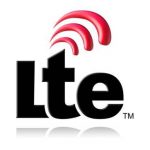
Verizon Wireless recently published a marketing video that covers the company's LTE trial deployment in Boston, Massachusetts, and though the majority of the video is dedicated to consumer reactions, there is a brief glimpse of the system running at an average 8.55 Megabits per second downstream and 2.80 Megabits per second upstream.
These speeds are actually a bit lower than those reportedly attainable on the first commercial LTE deployment in Scandinavia. The LTE deployment in Sweden reportedly never exceeded 12Mbps downlink and 5Mbps uplink when tested by management consulting firm Northstream in January.
AT&T, Verizon stand against FCC's 'Third Way,' Sprint on the fence

With Congress' dance card already overflowing with major social and policy reforms, including in the financial sector, the likelihood that it could pass a major reform to the Telecommunications Act for Internet regulation during the Obama Administration (however long it lasts) is quite low. Faced with a pair of no-win scenarios, the FCC last week opted to propose a "Third Way" for broadband regulation that could at least get its foot back in the door -- a way that literally asks judges and attorneys-general to substitute "telephone" for "broadband" in various clauses of existing law, except for those sections where doing so wouldn't make any sense.
With major wireless Internet providers feeling they gain little or nothing by allowing the FCC to extend its regulatory ability, companies like Verizon, AT&T, and Comcast (which, after all, won that court decision last month) are fine with the status quo. But a statement from Sprint late last week was, by contrast with those of its competitors, so conciliatory and non-descript that it was interpreted by many industry watchers as outright support for FCC Chairman Julius Genachowski.
Maxed out in financial software, Intuit jumps into healthcare with $91m buy of Medfusion
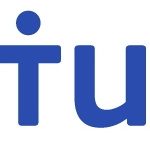
Last week, we took a look at Mint's new app for Android, which lets users track their finances and budget on their mobile device in a safe, read-only app. Mint.com was acquired by Intuit Software in late 2009, meshing the free, Web-based personal finance service with Intuit's portfolio of financial, accounting, and budgeting services.
Today, Intuit announced it is expanding further into online healthcare services with its acquisition of North Carolina company Medfusion for an estimated $91 million in cash.
Like I said, iPhone can't win the smartphone wars
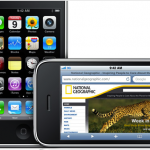
Normally, I hate to say "I told yo so." But Macheads whacked me so hard for last October's "iPhone can't win the smartphone wars," I simply can't resist gloating. According to NPD, during the first three months of 2010, as measured by smartphone operating system unit shipments, Android outsold iPhone -- 28 percent to 21 percent market share. BlackBerry OS had 36 percent share. The data is for the United States only.
Android has gotten a big US boost over the last seven months or so. Late 2009, Verizon launched the Droid, putting up $100 million in marketing. Apple isn't the only company that knows how to successfully sell gadgets. Some of that Verizon marketing attacked AT&T network reliability -- and quite effectively. Meanwhile, Android handset distribution increased from one to all four major carriers, while iPhone is confined to AT&T.
Twitter resets follow lists to zero because of 'auto-follow' bug
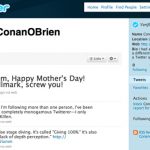
A few quick articles popped up in tech blogs this afternoon which confirmed a serious flaw in the Twitter follow system. Notably, the Gizmodo article entitled "How to Force Anyone to Follow you on Twitter," showed that by simply typing
"accept [username]" into the Twitter Web interface, you could turn anyone into your Twitter follower.
Immediately, users began turning celebrity Twitter users into their followers. Former late night talk show host Conan O'Brien, who makes a point of only following one person, immediately began following hundreds of profiles.
Facebook to fight privacy complaint with help of former FTC chairman

2:15 pm EDT May 10, 2010 · Facebook has indicated to press sources that it has not brought on former FTC chairman Timothy Muris as an employee, as has been reported elsewhere. Muris is an attorney with O'Melveny & Myers, LLP.
In a signal that Facebook is taking the messages of last week seriously -- messages that included a privacy complaint filed last week with the US Federal Trade Commission by the Electronic Privacy Information Center (EPIC) (PDF available here) -- the San Jose Business Journal broke the news that it has hired Timothy Muris, the former chairman of the FTC under President Bush, presumably as its privacy point man.
Microsoft pays for enthusiasts Apple gets for free
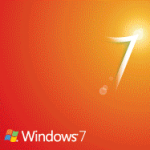
Microsoft is hawking partner wares through Windows Team Blog posts. My inclination is to praise -- and I will -- but I can't resist a little a little jab, too. A decade ago there were just a handful of Apple blogs or fan sites, like MacCentral and ThinkSecret, now there are bazillions covering every scrap of Apple news or rumor. Where are the Microsoft enthusiasts? Must they be employee bloggers selling new Windows PCs?
This morning, not one, but two, Windows Team Blog posts caught my attention -- it's more when counting duplicates, but let's not go there (both posted yesterday). The first: "From Us With Love" by Ashley Brown and "Hands on with today's offer PC -- the Sony VAIO E Series" by Ben Randolph. Brown writes about three deals and Randolph what you can do with one of them. The emphasis in both is the same: "Our offers." Randolph's post reads like the kind of first-hand, enthusiast account that might pop up on an independent blog or in a comment or forum. The posts are part of a series highlighting Microsoft partner products. None of this is super new; I finally decided to blog it today.
Android usurps iPhone in market share

Android is now the number two smartphone operating system in market share behind BlackBerry, NPD Group's Wireless Market Research report said today. This is the first time Google's open mobile platform has passed Apple's iPhone OS in market share since it debuted in October 2008.
According to NPD's data, BlackBerry still leads the smartphone market with 36% penetration, followed by Android with 28% and then iPhone with 21%.
WiGig publishes 7 Gbps wireless home networking spec

Exactly one year after making its public debut, the Wireless Gigabit Alliance (also known as WiGig) has published its spec for the unlicensed 60 GHz band, which it is pushing as a new, faster standard for home networking.
The 60 GHz WiGig spec is not meant to be a replacement to current 2.4 GHz and 5 GHz Wi-Fi technologies, but instead to act as a complement that is targeted to devices requiring gigabit speeds, like HD video. While the new spec supports data transfer rates up to 7 Gbps, the high absorption of 60 GHz waves make it suitable only for short-distance communication.
Warner cheapens and expands DVD-to-Blu-ray exchange program
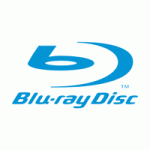
At about this time last year, Warner Brothers began an exchange program called Red2Blu that swapped HD DVDs for Blu-Ray discs, letting consumers trade their unsupported Warner Brothers HD DVDs and $4.95 for the same title on Blu-ray.
About six months later, the studio unveiled a similar project called DVD2Blu that let consumers trade in their standard DVDs (and $7.95-$9.95) for a Blu-ray upgrade. The upgrade program included 55 Warner Brothers titles.
BetaNews, your source for breaking tech news, reviews, and in-depth reporting since 1998.
© 1998-2025 BetaNews, Inc. All Rights Reserved. About Us - Privacy Policy - Cookie Policy - Sitemap.
